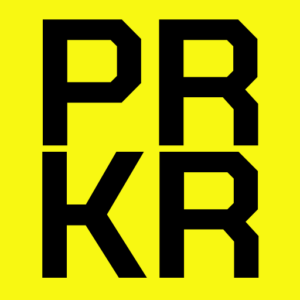A career in public relations can be a fantastic choice if you’re drawn to communication and creativity. You’ll manage organizational images, build trust, and engage audiences through strategic messaging. With opportunities to work on exciting campaigns and events, the job keeps you engaged and challenged. Plus, the demand for skilled PR professionals is on the rise, particularly in today’s digital landscape. While it has its challenges, including crisis management and ever-evolving media trends, the potential for job satisfaction and innovative work makes PR an appealing field. There’s so much more to explore about this dynamic career path.
Understanding Public Relations

Public Relations is all about shaping and maintaining a positive image for organizations while managing their relationships with key stakeholders.
As you explore this field, you’ll notice how it’s evolved in the digital age, adapting to new media and communication strategies.
Understanding these core aspects is essential if you’re considering a career in PR.
What is Public Relations?
Shaping public perception, public relations (PR) serves as a crucial bridge between organizations and their audiences. PR focuses on managing an organization’s public image and reputation through strategic communication.
As a public relations professional, you’ll engage in various tasks that require a mix of skills and expertise. Key elements include:
- Effective Communication: Crafting messages that resonate with target audiences is vital.
- Crisis Management: Being prepared to handle unexpected challenges and maintain trust during tough times is essential.
- Building Relationships: Developing media contacts and fostering relationships is crucial for successful PR initiatives.
Many professionals in PR hold a public relations degree or a related field, which helps sharpen their communication skills and strategic planning abilities.
You’ll work in PR by coordinating events, managing media relations, and employing effective communication strategies to influence public opinion. The dynamic nature of PR means you’ll continuously adapt and learn, making it an exciting career choice.
Whether you aim to handle brand narratives or navigate crises, the skills you develop will be invaluable in shaping the narrative and perception of your organization.
The Evolution of PR in the Digital Age
The rise of digital platforms has dramatically transformed PR practices, creating a landscape that’s more dynamic and interconnected than ever before. In this digital era, a career in public relations demands adaptability and strong communication skills.
You’ll find that managing social media accounts is now a critical part of effective PR campaigns. PR professionals must develop relationships with influencers to amplify brand messages, making strategic thinking essential.
The integration of online media means you’ll need to embrace media buying strategies and analytics to measure campaign success. This evolution has shifted the focus from traditional press releases to engaging content that resonates with audiences across various platforms.
The ability to pivot quickly in response to trends or crises is crucial, as the digital space is continually evolving.
Moreover, understanding audience sentiment through social media interactions enhances your PR strategies, allowing for more impactful communication.
As you navigate this new terrain, the skills you develop won’t only help you thrive in the industry but also set you apart in a competitive job market. Embracing these changes will lead to innovative approaches and successful outcomes in your PR career.
Career Opportunities in Public Relations

In public relations, you can start in entry-level positions like PR assistant or account coordinator, where you’ll gain valuable experience.
As you grow, you might specialize in areas like crisis management or digital PR, eventually moving into senior roles such as PR manager or director.
This field offers diverse pathways for career advancement, allowing you to shape your professional journey based on your interests and skills.
Entry-Level Positions
As you embark on a career in public relations, you’ll find several entry-level positions that can kickstart your journey in this dynamic field. One of the most common roles is that of a public relations assistant, where you’ll support PR professionals in various tasks.
Your responsibilities might include:
- Managing social media accounts – You’ll help create and schedule content that aligns with brand messaging.
- Event management – You’ll assist in organizing events, ensuring everything runs smoothly and meets client needs.
- Writing and research – You’ll develop press releases, pitch stories to media, and conduct research to inform PR strategies.
These entry-level positions provide you with essential writing skills and interpersonal skills while offering a clear career path.
Working in PR agencies exposes you to diverse clients and projects, enhancing your experience and expertise. As you grow, you can transition into more specialized roles and take on greater responsibilities.
Embrace the opportunity to learn from seasoned PR professionals, and remember, the foundation you build in these initial roles will be pivotal for your future success in the industry.
Senior Roles and Specializations
Building on your foundational experience in entry-level PR positions, senior roles like Senior PR Strategist and Head of PR offer exciting opportunities to shape a company’s public image strategically.
These advanced roles hold significant strategic importance in the PR industry, as they focus on managing stakeholder relationships and aligning communication strategies with corporate goals.
To excel in these senior roles, you’ll need a blend of crucial skills. Strong leadership and managerial abilities are essential, as you’ll guide teams and drive campaigns.
You’ll also need exceptional communication skills, strategic thinking, and the capacity to analyze media trends. Experience in crisis management and a deep understanding of digital communications will further enhance your effectiveness.
In-house PR professionals often transition into these senior roles, leveraging their knowledge of the company culture and objectives.
By fostering robust stakeholder relationships, you can elevate your organization’s reputation and influence public perception.
Thus, pursuing a public relations career, especially in senior positions, opens avenues for meaningful impact and professional growth within the dynamic PR landscape.
The Skills That Power a PR Career

To thrive in a PR career, you need a solid skill set that includes strong communication, creativity, and strategic thinking.
Developing these skills is crucial, as they not only enhance your effectiveness but also open doors for career advancement.
Let’s explore the essential skills and how you can cultivate them for success in the dynamic world of public relations.
Essential PR Skills
Successful PR professionals often possess a unique blend of essential skills that enable them to navigate the fast-paced and dynamic nature of the industry.
To thrive in your PR career, you’ll need to focus on honing these key skills:
- Strategic Thinking: You’ll need to develop campaigns that align with both your organization’s goals and stakeholder interests. This involves understanding the current PR landscape and anticipating trends.
- Crisis Management: When issues arise, your ability to respond swiftly and effectively can make or break a reputation. You’ll need to prepare for potential pitfalls and have a plan in place.
- Media Relations: Building strong relationships with media outlets is crucial. You’ll be responsible for securing earned media placements and ensuring your narrative reaches the right audience.
Mastering these essential skills not only enhances your effectiveness as a PR professional but also sets you up for success in your career.
Embrace the challenges of PR work, and continue to develop your skill set to stay ahead in this ever-evolving field.
Developing Your PR Skill Set
In the fast-paced world of public relations, honing your skills is essential for standing out and making an impact. Whether you hold a degree in public relations or are considering this career choice, developing a robust skill set is crucial. PR professionals often navigate diverse responsibilities, from crafting compelling press releases to managing PR campaigns.
Internships offer invaluable hands-on experience, allowing you to apply theory in real-world scenarios.
To succeed in PR jobs, focus on enhancing your communication, writing, and interpersonal skills. These attributes enable you to build relationships with media outlets, clients, and colleagues. If you aspire to move up the ladder, consider pursuing a master’s program to deepen your knowledge and expertise.
Working in-house or at a PR agency presents unique challenges and opportunities, so adapt your skills accordingly. Stay updated with industry trends and advancements to maintain your competitive edge.
The Impact of PR on Business Success

Public relations plays a crucial role in shaping how people perceive a brand, which can significantly boost its image.
When crises arise, effective PR strategies can manage the situation and protect the company’s reputation.
Understanding these impacts can help you appreciate the value of PR in driving business success.
Boosting Brand Image
Effective PR strategies play a crucial role in enhancing brand recognition and fostering customer loyalty. By effectively communicating your brand’s message, you can create a positive image that resonates with your target audience.
Here are three ways PR firms contribute to boosting brand image:
- Strategic Messaging: PR professionals must craft compelling narratives that align with your marketing strategy, ensuring your brand values shine through. This helps establish a strong identity in the PR world.
- Media Relationships: Building relationships with media outlets is essential. PR firms leverage these connections to secure coverage, increasing brand visibility and recognition among potential customers.
- Engagement Tactics: Engaging with your audience through social media and events strengthens customer loyalty. Professionals on the agency side can create interactive campaigns that invite feedback and foster community.
The opportunity to work in PR not only allows you to enhance brand recognition but also to develop skills that are invaluable in today’s competitive landscape.
While long work hours can be challenging, the rewards of creating lasting impressions and loyal customers make it a fulfilling career choice.
Managing Crises
Crisis situations can strike any business unexpectedly, and how you respond can make all the difference in public perception.
As a PR professional, managing crises effectively is crucial to mitigate negative impacts on your company’s reputation. Your communication skills become essential tools in these moments, helping you craft messages that resonate with the public and restore trust.
In your current job, you’ll often find yourself planning events or strategic communications to address emerging issues.
Being proactive rather than reactive can significantly influence how stakeholders perceive your brand during tough times.
PR professionals must stay agile in this constantly changing landscape, adapting strategies to meet the unique challenges of each crisis.
What Makes PR a Rewarding Career?

If you’re considering a career in PR, you’ll likely find immense job satisfaction in shaping narratives and influencing public perception.
The field invites your creativity and innovation, allowing you to craft compelling stories that resonate with audiences.
Plus, the dynamic nature of PR keeps you engaged and challenged every day.
Job Satisfaction in PR
Finding fulfillment in a public relations career often stems from the dynamic nature of the work and the tangible impact it has on an organization’s success.
You’ll experience high job satisfaction for several reasons:
- Variety of Tasks: As a PR professional, you tackle diverse responsibilities daily. From media relations to crafting press releases, your role keeps you engaged and challenged.
- Impact of Work: Your efforts directly influence business success. Whether you’re an account manager or part of a larger team, seeing your strategies come to life and resonate with audiences can be incredibly rewarding.
- Networking Opportunities: Although the expectation of attending fabulous parties mightn’t always align with reality, the connections you build with journalists and influencers can significantly enhance your career.
With a degree in communication, you’ll be well-equipped to navigate this fast-paced industry.
Plus, the median annual salary for PR professionals reflects the value of your contributions.
Potential for Creativity and Innovation
Public relations thrives on creativity and innovation, allowing you to craft unique narratives that captivate audiences and differentiate brands. As a PR professional, you’ll engage in creative problem-solving to develop innovative campaign strategies that set your clients apart from business competitors. Whether you’re pursuing a public relations degree or advancing through a master’s program, these skills are essential.
Your role often involves organizing press conferences and briefings that require fresh ideas and strategic thinking. Staying attuned to up-to-date industry trends ensures you can leverage new tactics effectively. For instance, the table below illustrates key aspects of creativity in PR:
| Aspect | Description |
|---|---|
| Creative Problem-Solving | Finding unique solutions to complex communication challenges. |
| Innovative Campaigns | Developing fresh strategies that engage target audiences. |
| Competitive Analysis | Evaluating business competitors to identify opportunities. |
| Leadership Opportunities | Roles like vice president of PR require visionary creativity. |
In PR, every day presents a chance to think outside the box and make a real impact. Embrace these opportunities, and you’ll find the field rewarding and dynamic.
Challenges in Public Relations

In PR, you’ll often find yourself navigating complex public perceptions, which can shift rapidly.
The high-stakes nature of crisis management demands quick thinking and a strong command of communication strategies.
To succeed, you’ll need to blend creativity with analytical skills to effectively address challenges as they arise.
Navigating Public Perception
Navigating the complexities of public perception is a constant challenge for PR professionals, especially in an era where media landscapes and public expectations shift rapidly.
Maintaining a positive public image requires you to adapt quickly to these changes and successfully manage your clients’ reputations. Here are three key challenges you’ll face:
- Evolving Media Landscapes: With the rise of digital platforms and social media, the way information spreads has transformed. You must stay ahead of trends to effectively communicate your message.
- Public Expectations: Audiences today demand transparency and authenticity. You’ll need to ensure your strategies align with these expectations, as failing to do so can damage reputations.
- Crisis Management: When issues arise, PR professionals must act swiftly to mitigate negative impacts. Your ability to navigate perception during a crisis can define your career.
In this dynamic field, continuously refining your skills and strategies is essential.
The High-Stakes Nature of Crisis Management
Crisis management in PR is a high-stakes arena where quick thinking and decisive action can make or break a reputation. When a public crisis hits, the pressure mounts, and you must act swiftly to mitigate damage. This intense environment demands a unique set of skills from professionals like you.
You’ll need to harness your communication prowess, analytical abilities, and creativity to craft effective narratives that resonate with the public. As you pursue a career in public relations, be prepared for challenges that extend beyond the glamorous events often depicted in media.
You’ll find yourself navigating complex situations where every word counts. The ability to remain calm under pressure is crucial; your quick thinking could determine how stakeholders perceive your client.
Moreover, successful crisis management requires teamwork and strategic planning. You’ll collaborate with various departments to ensure a cohesive response. Remember, the goal isn’t just to survive a crisis but to emerge stronger, reinforcing trust with your audience.
In this high-pressure field, your ability to adapt and deliver results can set you apart from others, paving the way for a rewarding PR career.
Conclusion
In conclusion, a career in public relations can be both rewarding and challenging. You’ll have the chance to shape narratives, connect with diverse audiences, and drive business success. While it requires strong communication skills and the ability to navigate tricky situations, the dynamic nature of PR keeps the work exciting. If you’re passionate about storytelling and building relationships, PR might just be the perfect fit for you. Embrace the journey and discover where it can take you!


